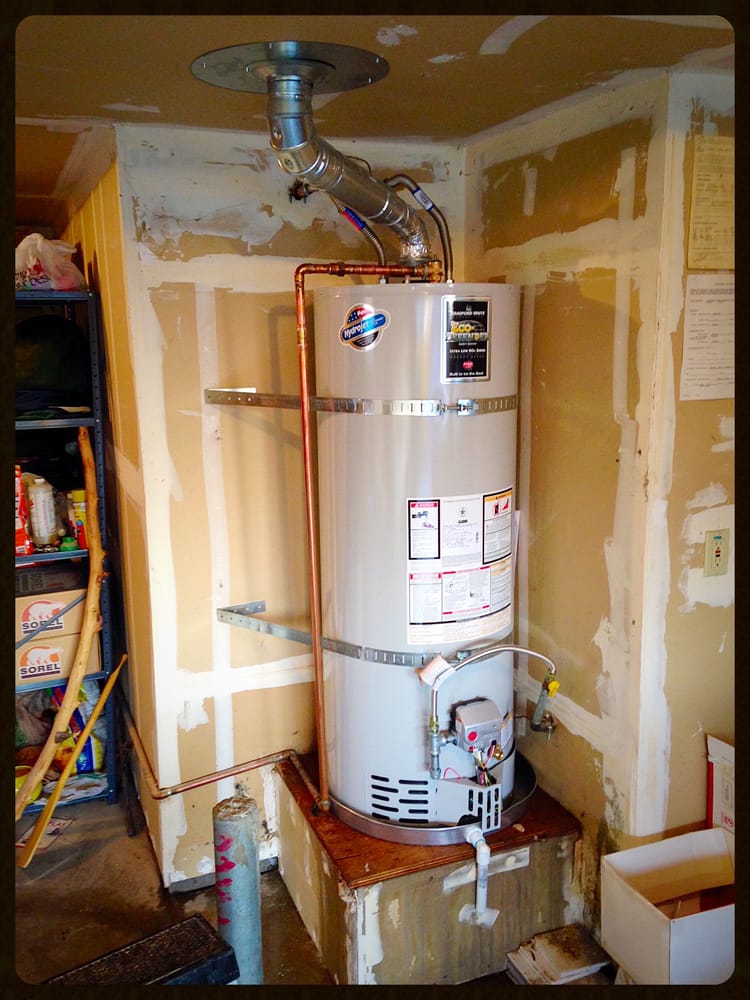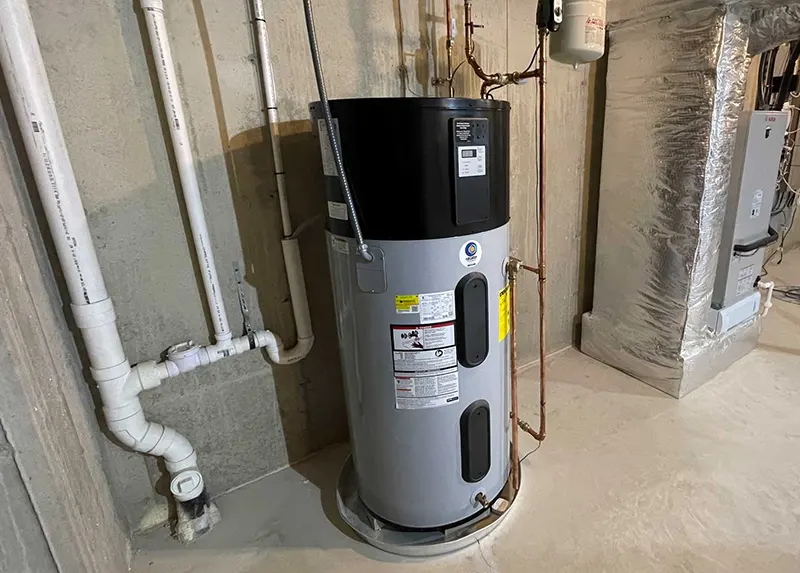Gas Leak Repair by Certified Technicians for Maximum Peace of Mind
Gas Leak Repair by Certified Technicians for Maximum Peace of Mind
Blog Article
Total Overview to Water Heating UnitSetup and Substitute
Recognizing the ins and outs of water heating system installation and substitute is vital for home owners seeking to ensure effectiveness and reliability in their hot water supply. From choosing the proper kind and size to performing a seamless setup process, numerous variables must be considered to avoid common pitfalls.
Kinds Of Hot Water Heater
When considering hot water heater setup and replacement, it is vital to recognize the different kinds of hot water heater offered in the marketplace. The most common kinds include storage tank water heating systems, tankless hot water heater, heatpump hot water heater, and solar hot water heater.
Storage tank water heating units are standard systems that keep a certain volume of warm water, making them easily available when required. In comparison, tankless water heaters give hot water on need, getting rid of the need for storage space.
Heatpump water heating systems make use of electricity to transfer heat from the air or ground to heat water, using considerable power savings however calling for more space and particular installment conditions. Lastly, solar hot water heater harness solar energy to warm water, giving an environment-friendly option with possible long-term price financial savings, although they typically need a back-up system for gloomy days.
Recognizing these choices guarantees informed decisions regarding installment and substitute, providing to specific demands and choices.
Choosing the Right Size
Selecting the appropriate dimension for a hot water heater is important to make certain optimum efficiency and performance. A device that is too tiny will have a hard time to fulfill family demands, resulting in inconsistent warm water accessibility and raised energy consumption. Conversely, a large water heater can lead to unneeded energy waste and higher utility expenses.
To determine the right size, consider the house's peak hot water usage. This can be determined based upon the variety of residents and their normal warm water requirements. A family of 4 may need a water heating system with a capacity of 50 to 80 gallons, depending on the usage patterns, such as synchronised showers and laundry.
Furthermore, evaluate the recovery rate, which gauges just how rapidly a heating unit can restore warm water after it has actually been used. For tankless models, focus on the flow price, measured in gallons per minute (GPM), to ensure it satisfies the house's simultaneous need.

Installment Process Review

Following, the old unit has to be disconnected and removed, taking care to adhere to local codes and laws regarding disposal. Once the old system is out, the new hot water heater can be placed in place. This action entails attaching the water system lines, ensuring that all installations are safe and secure and leak-free.
After establishing water links, it's vital to attach the power supply, whether electric or gas, following the producer's directions meticulously. When all connections are made, the system ought to be full of water, and the power can be turned back on. It's essential to examine for leaks and ensure click here to find out more the water heating system is operating correctly prior to completing the installation process.
Usual Setup Mistakes

One more regular mistake is ignoring to adhere to neighborhood codes and policies. Falling short to stick to these standards can not just lead to safety threats but might also result in costly penalties or the demand for expensive reinstallation.
Falling short to protect connections or utilizing the incorrect type of installations can lead to leaks and water damage. By avoiding these usual setup blunders, homeowners can guarantee their water heating system runs safely and efficiently, making the most of performance and longevity.
Upkeep Tips for Longevity
Appropriate maintenance of a water heating system is necessary for its durability and ideal performance. Routine assessments and servicing can prevent expensive repair work and extend the home appliance's lifespan. Begin by inspecting the temperature setup; it must commonly be set in between 120 ° F and 140 ° F for ideal energy effectiveness and safety.
Every 6 months, flush the container to get rid of debris build-up, which can impair home heating efficiency and cause corrosion. To do this, switch off the heater, attach a pipe to the drainpipe valve, and let the water run up until it is clear.
Anode rods should be evaluated yearly and changed when they are corroded. These rods help prevent tank corrosion by bring in destructive elements in the water.
In addition, inspect the pressure safety valve routinely to ensure it is working appropriately. This valve is important for protecting against excessive stress buildup within the container.
Lastly, take into consideration setting up a specialist upkeep check every few years for comprehensive evaluations and servicing. By adhering to these maintenance tips, home owners can significantly improve the performance, security, and life expectancy of their hot water heater, making sure reliable hot water for several years to find.
Final Thought
To conclude, appropriate installation and upkeep of water heating systems are discover here essential for ensuring performance and durability (plumber Denton). Selecting the appropriate kind and size, adhering to installation standards, and preventing common errors considerably add to optimal performance. Normal maintenance checks and professional maintenance help suffer functionality and stop costly fixings. By understanding these vital aspects, property owners can accomplish a dependable warm water supply while reducing potential problems connected to water heating unit procedure.
Recognizing the complexities of water heating system setup and substitute is essential for house owners seeking to make sure effectiveness and reliability in their warm water supply.Storage tank water heaters are standard systems that keep a particular volume of warm water, making them readily offered when needed. In contrast, tankless water heaters supply hot water on need, eliminating the demand for storage. Choosing a water heating unit that is either also tiny or as well huge can lead to ineffectiveness, resulting in inadequate hot water supply or extreme energy usage.
By understanding these vital facets, home owners can attain a trusted hot water supply while reducing potential problems related to water heating unit procedure. water heater installation.
Report this page